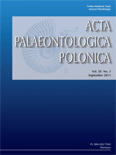
ACTA PALAEONTOLOGICA POLONICA
Scope & Guideline
Illuminating the Path of Life Through Time
Introduction
Aims and Scopes
- Paleobiology and Evolutionary Studies:
The journal emphasizes the evolutionary history of organisms, investigating their development, adaptations, and relationships through time. This includes studies on morphological changes, phylogenetics, and the evolutionary implications of fossil findings. - Taxonomy and Systematics:
A significant focus is placed on the classification and description of new species, genera, and families across various taxa, including vertebrates, invertebrates, and plants. This area of research contributes to understanding biodiversity and the evolutionary relationships among organisms. - Paleoecology and Taphonomy:
Research in this area examines past ecosystems, environmental conditions, and the processes that affect fossil preservation. Studies often explore how ancient organisms interacted with their environments and the implications for modern biodiversity. - Stratigraphy and Biostratigraphy:
The journal publishes research that integrates stratigraphic data with paleontological findings, facilitating correlations between fossil assemblages and geological time scales. This includes studies on the distribution and abundance of fossils in various strata. - Morphological and Functional Analysis:
There is a strong emphasis on the morphological characteristics of fossils, including biomechanical analyses and studies of functional morphology. This research provides insights into the life habits and adaptations of ancient organisms.
Trending and Emerging
- Integrative Approaches to Paleobiology:
There is an increasing trend towards integrative research that combines multiple disciplines such as genetics, geology, and ecology to provide a holistic understanding of ancient life and its environments. - Advanced Imaging and Analytical Techniques:
The use of advanced imaging technologies, such as CT scanning and 3D modeling, is becoming more prevalent. These methods allow for detailed analysis of fossil morphology and internal structures, leading to new insights in paleontological research. - Paleopathology and Disease Studies:
Emerging interest in the study of diseases in ancient organisms, including evidence of trauma and pathology in fossils, is gaining momentum. This research provides valuable information about the health and lifestyle of extinct species. - Climate Change and Its Historical Impacts:
Research that examines the impact of past climate changes on biodiversity and extinction events is increasingly prominent. Understanding these historical patterns is crucial for contemporary discussions on climate resilience and adaptation. - Morphometric Studies and Shape Analysis:
There is a growing emphasis on quantitative morphometric analysis to study shape variation and its evolutionary implications. This trend reflects a broader interest in understanding the functional significance of morphology in paleobiology.
Declining or Waning
- Paleoanthropology:
Research focusing on human evolution and the study of hominins has seen a decline in recent publications. This may reflect a growing saturation in the field or a shift towards more specialized studies within paleoanthropology. - Micropaleontology:
While still an important area, there has been a noticeable reduction in studies related to microfossils and their applications in paleoecology. The focus seems to have shifted towards more comprehensive studies of macrofauna and flora. - Paleoenvironmental Reconstruction:
Although still relevant, the frequency of detailed paleoenvironmental reconstructions based on fossil evidence appears to be less common. This may indicate a shift towards more specific case studies rather than broad environmental assessments.
Similar Journals
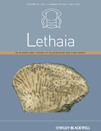
LETHAIA
Innovating Insights into Evolution and EcologyLETHAIA, an esteemed journal published by Scandinavian University Press - Universitetsforlaget AS, serves as a vital platform for the dissemination of innovative research in the fields of paleontology as well as ecology, evolution, behavior, and systematics. Established in 1968 and continuing its impactful journey until 2024, LETHAIA has consistently contributed to advancing scientific understanding of Earth's biological and geological history. With a 2023 impact factor placing it in the Q2 category for both Paleontology and Ecology, Evolution, Behavior and Systematics, the journal is recognized for its high-quality, peer-reviewed articles that engage and challenge the academic community. Researchers, professionals, and students alike will find LETHAIA to be an indispensable resource for the latest findings, methodologies, and theoretical advancements in these interlinked disciplines.

Palaeobiodiversity and Palaeoenvironments
Connecting the Dots of Earth's Ecological History.Palaeobiodiversity and Palaeoenvironments, published by SPRINGER HEIDELBERG, is a distinguished academic journal that focuses on the intricate intersections of paleontology, ecology, and geology. With a strong commitment to advancing research in these fields, the journal maintains a notable impact factor and successfully ranks in the second quartile (Q2) in renowned categories including Ecology, Evolution, Behavior and Systematics, and Geology, providing significant visibility to contemporary research endeavors. Spanning a publication timeline from 2010 to 2024 and indexed under the respected Scopus database, it features a diverse array of articles that address the complexities of past biodiversity and ecosystems. Positioned within Germany's vibrant academic landscape, this journal appeals to a broad readership of researchers, professionals, and students who are eager to uncover the historical narratives of our planet’s life forms and their environments.
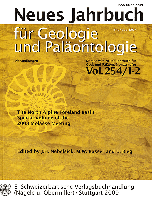
NEUES JAHRBUCH FUR GEOLOGIE UND PALAONTOLOGIE-ABHANDLUNGEN
Bridging the Past and Present of Planetary ScienceNEUES JAHRBUCH FUR GEOLOGIE UND PALAONTOLOGIE-ABHANDLUNGEN, published by E SCHWEIZERBARTSCHE VERLAGSBUCHHANDLUNG, is a distinguished scholarly journal based in Germany that has made significant contributions to the field of Earth and Planetary Sciences with a particular emphasis on Paleontology. With its ISSN: 0077-7749, this journal provides an essential platform for researchers, professionals, and students to explore cutting-edge research and developments that enhance our understanding of geological and paleontological processes. Boasting a robust ranking of #67 out of 113 in Scopus for the category of Earth and Planetary Sciences and achieving a Q3 quartile ranking in Paleontology, it stands as a significant resource in the global academic community. Though not an open-access journal, it offers valuable insights from 1987 onwards, ensuring a comprehensive archive of high-quality research articles published from 1995 to 2024. Its scholarly impact continues to resonate, making it a vital reference point for advancements in the ever-evolving disciplines of geology and paleontology.

PALEONTOLOGICAL JOURNAL
Unlocking the Mysteries of Our Planet’s History.The PALEONTOLOGICAL JOURNAL, published by PLEIADES PUBLISHING INC, is a premier platform for the dissemination of research in the field of paleontology. With an ISSN of 0031-0301 and E-ISSN 1555-6174, this journal serves the academic community by providing insights into fossil studies, evolutionary biology, and the historical narrative of life on Earth. Despite being categorized in the Q3 quartile for 2023 and currently holding a Scopus rank of #84 out of 113 in the Earth and Planetary Sciences- Paleontology category, it remains a valuable resource for researchers and practitioners. The journal's coverage spans from 1990 to 2024, offering a comprehensive historical perspective while also addressing contemporary issues in paleological research. Scholars and students alike benefit from its rigorous peer-reviewed articles and the opportunity to access vital knowledge in the ever-evolving field of paleontology.
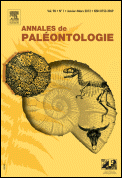
ANNALES DE PALEONTOLOGIE
Pioneering Studies in Earth and Planetary SciencesANNALES DE PALEONTOLOGIE is a distinguished academic journal published by MASSON EDITEUR that plays a pivotal role in the field of paleontology. With an ISSN of 0753-3969 and an E-ISSN of 1778-3666, this journal has been a vital resource since its inception in 1988, continuously contributing to the advancement of knowledge in Earth and Planetary Sciences, particularly focusing on paleontological research. Currently ranked #68 out of 113 in its category by Scopus, and celebrated for its Q2 quartile standing, ANNALES DE PALEONTOLOGIE publishes innovative studies, reviews, and discussions that appeal to a diverse audience of researchers, professionals, and students. The journal aims to foster a deeper understanding of paleontological phenomena and encourages interdisciplinary collaboration within the scientific community. Although it is not an open access journal, its commitment to scholarly excellence ensures that the content is highly regarded and widely referenced in academic circles. Situated in Issy-les-Moulineaux, France, it continues to maintain a global readership while promoting significant advancements in paleontological research.
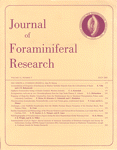
JOURNAL OF FORAMINIFERAL RESEARCH
Fostering Inquiry into the Microscopic World of ForaminiferaJOURNAL OF FORAMINIFERAL RESEARCH is a premier academic journal published by the Cushman Foundation for Foraminiferal Research, dedicated to advancing the field of foraminiferal studies within the broader disciplines of paleontology and microbiology. Established in 1979, this journal has been a vital publication for researchers aiming to explore the intricate relationships between foraminifera and their environments, contributing to a deeper understanding of earth's history. With a Q4 ranking in Microbiology and a Q3 ranking in Paleontology as of 2023, it plays an essential role in shaping scholarly discourse in these areas. Although it currently does not offer open access, the journal remains a valuable resource for scientists, professionals, and graduate students eager to engage with contemporary research findings and methodologies. The subtle interconnections between foraminiferal research and broader ecological implications underscore the journal's commitment to fostering academic inquiry, making it an indispensable ally for those invested in the ongoing scientific exploration of our planet.
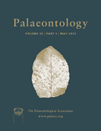
PALAEONTOLOGY
Bridging Science and History: The Essence of PaleontologyPALAEONTOLOGY, published by Wiley in the United Kingdom, is a leading journal dedicated to advancing the knowledge of Earth's biological history through the study of fossilized remains. With an ISSN of 0031-0239 and an E-ISSN of 1475-4983, this journal has established itself as a premier resource in the field, boasting a remarkable Q1 ranking in both Paleontology and Ecology, Evolution, Behavior and Systematics according to the 2023 category quartiles. Its commitment to high-quality research is evidenced by its Scopus rankings, placing it in the 93rd percentile among paleontology journals. While PALAEONTOLOGY is not currently open access, its extensive archival reach from 1979 to 2024 ensures that vital research findings remain accessible to the academic community. This journal not only acts as a platform for cutting-edge research but also fosters collaboration among scientists, students, and professionals interested in the implications of paleontological studies on contemporary ecological and evolutionary issues.
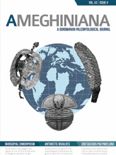
AMEGHINIANA
Pioneering Discoveries in Paleontology and BehaviorAMEGHINIANA is a distinguished academic journal published by the ASOCIACION PALEONTOLOGICA ARGENTINA, serving as a vital platform for the dissemination of cutting-edge research in the fields of Ecology, Evolution, Behavior and Systematics, as well as Paleontology. With its ISSN 0002-7014 and E-ISSN 1851-8044, the journal has established itself as a key reference point for scholars seeking to explore the intricate relationships within ecological systems and the evolutionary history of species. Despite not offering open access, AMEGHINIANA maintains a reputation bolstered by a Q3 ranking in both its subject categories, underlining its sustained commitment to enhancing scientific knowledge. Researchers and professionals alike benefit from this journal’s extensive archive of studies dating back to 1985, with ongoing contributions expected until 2024. With a focus on high-quality content, this journal is essential for anyone immersed in the study of paleobiology and ecological systems.

BULLETIN OF GEOSCIENCES
Exploring the Dynamics of Our Planet, One Study at a TimeBULLETIN OF GEOSCIENCES, published by the prestigious Czech Geological Survey, stands as a pivotal resource in the fields of Earth and Planetary Sciences and Environmental Science. Since its inception in 2003, the journal has been committed to advancing knowledge through high-quality research, currently holding a commendable Q2 ranking in both disciplines. With its focus on diverse and innovative topics, BULLETIN OF GEOSCIENCES provides an essential platform for researchers, professionals, and students aiming to disseminate and access impactful studies. The journal is indexed in Scopus, ranking #78/195 in General Earth and Planetary Sciences and #110/233 in General Environmental Science, reflecting its significant contribution to academia. Publishing from Prague, Czech Republic, this journal invites contributions that illuminate the interactions between geological processes and environmental phenomena, ensuring an inclusive and accessible approach to crucial global issues.
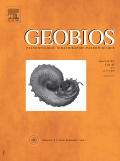
GEOBIOS
Exploring Earth's Past and BeyondGEOBIOS is a prominent academic journal published by Elsevier France-Editions Scientifiques Medicales Elsevier, specializing in the fields of Paleontology, Space and Planetary Science, and Stratigraphy. With a rich publication history dating back to 1966, the journal aims to foster scholarly communication and dissemination of significant research findings among professionals and researchers in earth sciences. Recognized for its impact within the scientific community, GEOBIOS holds a respectable Q2 ranking in several categories, positioning it within the top tiers of scientific journals. Despite its traditional publication format, the journal provides a platform for groundbreaking studies that influence our understanding of both the geological past and future planetary developments. The journal's consistent ranking, including Rank #36 in Paleontology and Rank #59 in Space and Planetary Science, underscores its relevance and significance in its field. GEOBIOS serves as an essential resource for those engaged in the exploration of earth's history and its extraterrestrial counterparts, making it invaluable to researchers, students, and professionals alike.